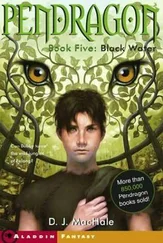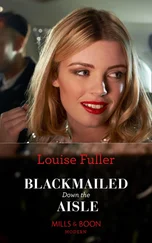For a few minutes, they listened. The darkness was complete out here and he dared not flick the lighter now they were out in the open. Perhaps when he skirted the trees on foot, he would be able to see if there was a little moonlight, enough for him to get his bearings. He estimated it would be another ten minutes or so to walk along the edge of the field and pass the treeline, using the route he had walked with Komang that afternoon — if his guesses about the path had been correct.
He dismounted the moped, removed his bag from across his chest and gave it to Wayan, then said to him, ‘Turn the moped round but don’t restart the engine. Stay right here so I can find you. Don’t move from this spot, and don’t light a cigarette or use your lighter. Listen, Wayan, there is great danger, okay? So it’s important you listen to me, only listen to me and you will be okay. Stay here. Right here. I’ll be back in a short while.’
Harper turned and set off before Wayan could argue with him. Wayan would be worried about the spirits of the night, how they could approach him from behind, or any direction, all at once perhaps, if he was not allowed to use a light. But there was no argument Harper could have advanced that would have allayed that particular fear, and there was no time. And as he skirted the edge of the field, his feet sinking a little deeper each time into the soft mud, he thought that perhaps Wayan was right: perhaps the group of men approaching Komang’s house now with paraffin lamps and machetes were spirits. Wasn’t it easier to think of them, or even yourself, in that way, rather than to look at your neighbour’s face in daylight and know the truth?
The insects hummed and sang, his feet made sucking noises in the mud, but other than that, it was silent as he approached the end of the field. As the treeline ended, he knew he should be able to see across the next field to Komang’s house.
He paused for a moment to listen — and then, sailing across the field through the black night, came a single, lengthy, agonised scream.
He was frozen, a sick, light sensation overwhelming him, and then he was running forward, the mud clinging to the soles of his shoes, impeding the lifting of his feet by just fractions of a second but enough to feel as though his feet were being sucked at, pulled down.
At the end of the treeline, he ducked down, although he knew there was no danger of the men looking his way, and in a crouching position, he ran back a little then crossed the next field, towards the patch of orange light he could see at the back of Komang’s house. From this distance, it was impossible to see what was happening. Where there was light at all, it was too bright and where it was dark, too dark. He could just make out a group of men, gathered close together and illuminated by a bare bulb hanging from the veranda and the orange light from their flares. Silhouetted against the glow from the house were black shapes, rising and falling. There were no more screams.
Then there were shouts as the group of men broke apart and Harper thought he saw the flit and flicker of someone fleeing the house at running pace. He crept a little closer, wading knee-deep in muddy water now. Some of the men were pointing in the direction in which the shape had fled.
A child of around six, a girl with plaited hair, appeared on the veranda — perhaps the fleeing shape had been one of the older children making a terrified dash for it, and the girl had followed but not run. Go back , Harper thought desperately, staring at the girl through the dark, go back inside , but the men nearest the veranda had seen her and only then did the child seem to realise her own folly. She turned and ran back inside the house. The door slammed shut but the men were already swarming onto the veranda and Harper had no need to stay to see what would happen next.
He made his way back across the rice field, knee-deep again, wretched at his own failure — he had been sent to do one simple thing, and he had failed. Had he been vehement enough, as he had sat on that veranda only a few hours ago, watching the golden light across the fields and drinking sweetened tea? Back towards the house, he heard the children’s screams, high and shrill.
It was only when a man’s shout came from behind him, sounding closer than it should be, that Harper turned and saw the silhouettes of men at the edge of his field. He had been spotted.
Caution was pointless then. He began to crash through the water, lifting his feet higher and higher with each step. How had he been spotted, out here in the dark? They must be scouting around for the figure that had fled the house. He rounded the treeline and then forced himself to pause for a moment behind a tree trunk, his back pressed up against it while he steadied his breath. He could hear the men moving across the field of water towards him, see the sway of one, two, three paraffin lanterns, but they were moving slowly, spread out, hunting him. They thought he was hiding in the water and they didn’t want to step past him. That was what he should have done but panic had made him run further than they thought.
Slowly, he crept back along the treeline, which was solid enough to hide his movements, although he could still see the glimmer of their lanterns, flickering now and then through the trees. He was only five minutes away from safety now. At the rate they were moving, he would be back at the top of the rise before they had reached the trees. By the time they heard the small roar of the motorcycle engine and worked out where it was coming from, he and Wayan would be halfway down the track that led back into town, then away altogether.
He was three, maybe four minutes from where he had left Wayan, approaching silently — he could not risk calling out — when he heard it. It was a tiny roar, sudden in the night, both distant and near. Wayan’s nerve had cracked and he had kicked down on the starter pedal and brought the moped to life. No. And as he lifted his feet to run towards Wayan, he saw the red tail light of the motorcycle, descending the sloping path as that poor man, having waited as long as he was able to without going mad, fled the horrors that were happening around him.
One single red light, that was all that was visible, leaving him behind as it descended, dropping into the earth, it seemed, as if the earth closed up over it as it dived into safety, and in that moment, Harper knew that he was more alone than he had ever been, unprotected, no weapon, in a rice field in the middle of nowhere, with a gang of men with machetes in pursuit, their blood up, the killers of children with nothing left to lose.
When the men from the Institute said to him, ‘And how did you survive the night, do you think? How come you were spared?’ he paused for a long while, then replied, slowly, as if they were a little stupid, ‘I hid. I hid in an irrigation ditch.’ He was leaning back in an easy chair. He had one leg bent and the ankle resting on the other knee. At no point in the interview did he sit up straight or lean forward.
One of the men from the Institute wrote it down on his clipboard but the other did not move. He was sitting in his chair with his arms crossed. He had round, steel-rimmed glasses that made his eyes glint and he looked at Harper and said calmly, in a non-judgemental tone of voice, ‘That’s a lie, isn’t it, Nicolaas?’ He had no evidence either way, of course. He was just smarter than the other one. He could read a pause.
‘No,’ Harper replied, looking straight at the man, which he could do with impunity because he had, much later that night, hidden in a ditch. ‘It isn’t. That’s what I did.’ It wasn’t a lie, as such, just not the whole truth. Later that night, he had found a place to hide an hour or two before dawn, an irrigation ditch. There had been two moments: the red tail light disappearing, and the grey light of breaking dawn — the space between those two moments, and what had happened in that space, how he had saved his own skin, that was none of their concern.
Читать дальше












